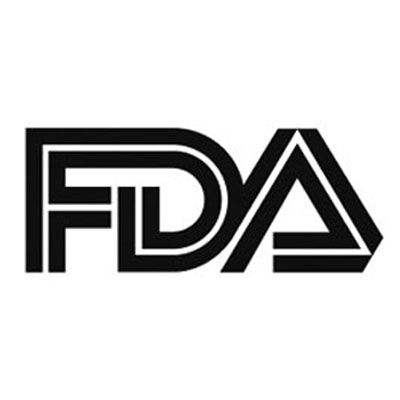FDA Grants Orphan Drug Designation to Zenocutuzumab as Treatment of Pancreatic Cancer
The FDA granted an Orphan Drug designation to zenocutuzumab for the treatment of patients with pancreatic cancer, announced Merus in a press release.

The FDA has granted an Orphan Drug designation to zenocutuzumab (MCLA-128) for the treatment of patients with pancreatic cancer, announced Merus in a press release.1
“Receiving Orphan Drug designation for zenocutuzumab is another important milestone for our lead program, and it validates the significant unmet need in patients with pancreatic cancer,” said Bill Lundberg, MD, president, chief executive officer and principal financial officer of Merus, in a statement. “We are pleased with the progress we are making in our ongoing global clinical trial and believe that zenocutuzumab has the potential to play a significant role in shifting the treatment paradigm for NRG1 fusion cancers from conventional chemotherapy to a personalized medicine approach.”
Zenocutuzumab, a first-in-class bispecific antibody, demonstrated promising early clinical responses as treatment of patients with previously treated pancreatic cancer harboring NRG1 gene fusions, according to a presentation from the 2019 AACR/NCI/EORTC International Conference on Molecular Targets and Cancer Therapeutics.
In this study, which was a clinical proof-of-concept study for zenocutuzumab, patients received the study drug at a dose of 750 mg intravenously once every 2 weeks.2
According to this presentation, a 52-year-old male with pancreatic cancer harboring an ATP1B1-NRG1 gene fusion was treated with zenocutuzumab and achieved a partial response after receiving treatment for at least 7 months. The maximum related toxicity was grade 2 in this patient. A 54-year-old male with CD74-NRG1-positive non–small cell lung cancer achieved a partial response after treatment with zenocutuzumab for at least 4.5 months. In a 34-year-old male who was also treated with zenocutuzumab for ATP1B1-NRG1-positive pancreatic cancer for at least 7 months, the best response achieved was stable disease, and the maximum related toxicity was grade 1.
In the 117 patients treated with zenocutuzumab in the study, the most suspected related adverse events (AEs) were grades 1 and 2 in severity, while grade 3 AEs occurring in <5% of patients. No grade 4 AEs were observed related to the study drug. Additionally, no severe related gastrointestinal (GI) or skin toxicities were observed, nor clinically significant left ventricular ejection fraction decreases or cardiac AEs.
Overall, zenocutuzumab had a well-tolerated safety profile, as well as a notable lack in cardiotoxicity and severe GI or skin toxicities.
The agent binds potently to the HER2 and HER2 receptors in order to block the interaction of HER3 with NRG1. NRG1 gene fusions are a powerful and rare driver of cancer cell growth and are commonly found in pancreatic, lung, and other solid tumors.1
Zenocutuzumab has the potential to be effective specifically in NRG1 gene fusion-positive cancers and has demonstrated its ability to inhibit HER2 and HER3 heterodimer formation and tumor growth in preclinical models that harbor the gene fusion.
Fusions between NRG1 and its partner genes are rare and have been associated with the activation of HER2 and HER2 signaling and growth of cancer cells. These fusions are estimated to occur in approximately 0.5% to 1.5% of pancreatic ductal adenocarcinomas, according to the limited available data that has been published. Pancreatic ductal adenocarcinoma is the most common subtype of pancreatic cancer, as well as 1 of the most aggressive solid tumors. This is also the fourth leading cause of cancer-related deaths. Overall, pancreatic cancer occurs in approximately 57,000 patients in the United States every year.
Zenocutuzumab is currently being investigated in a phase 1/2 clinical trial, known as the eNRGy study (NCT02912949). The study will assess both the safety and anti-tumor activity of this agent as a monotherapy treatment of NRG1 gene fusion-positive cancers, including 3 cohorts of pancreatic, non–small cell lung cancer, and other solid tumors.
Part 1 of the study, which was a dose escalation study, has been completed, and part 2 is currently enrolling to evaluate the safety and tolerability of the selected dose level. Enrollment is expected to include 250 patients who will receive zenocutuzumab in a non-randomized fashion. The primary outcome measures include characterization of safety and tolerability of the study drug, overall response rate, duration of response, and correlation of anti-tumor activity with biomarkers.
To be included in the study, patients must have at least 1 measurable lesion, an ECOG performance status of 0 or 1, and a life expectancy of at least 12 weeks. Patients with a known hypersensitivity to any components of zenocutuzumab are ineligible to enter the study, as well as those with known human immunodeficiency virus, Hepatis B, Hepatitis C, known symptomatic or unstable brain metastases, or leptomeningeal metastases.
Reference
1. Merus announced FDA orphan drug designation of zenocutuzumab for the treatment of pancreatic cancer. News Release. July 27, 2020. Accessed July 29, 2020. https://bit.ly/2X6L0Vg
2. Schram AM, O’Reilly EM, Somwar R, et al. Clinical proof-of-concept for MCLA-128, a bispecific HER2/3 antibody therapy, in NRG1 fusion-positive cancers. Presented at: 2019 AACR/NCI/EORTC International Conference on Molecular Targets and Cancer Therapeutics; October 26-30, 2019; Boston, MA.